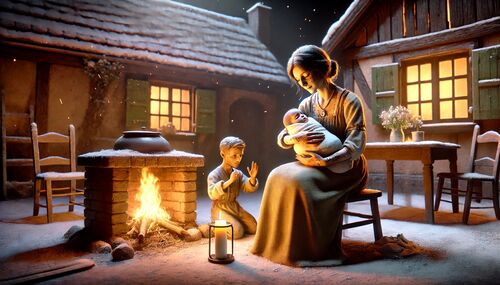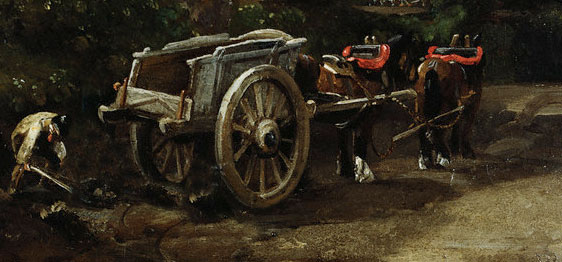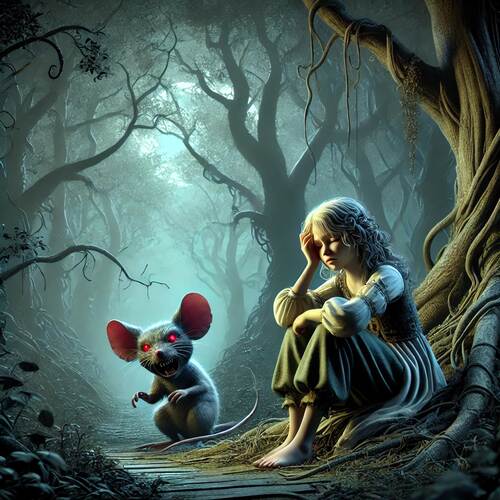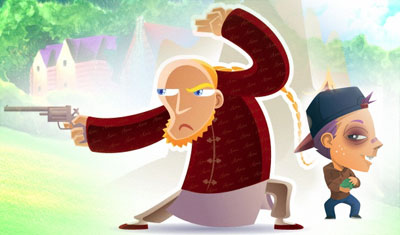Short Stories » The Challenge
The Challenge - Page 5 of 8
📢 Click the Play button to listen to this story aloud.
“These people go in large bands from this time until the winter, when they scatter in smaller bands. The elk leads a bachelor's life from January until midsummer, and about July he begins to look for company." This was Antler's observation.
'There are two large herds near Smoky Hill, upon the river meadows. It will be easy to catch some of the does in the evening, when they return to their fawns. They hide the fawns well.
"Some leave them in the woods, others take them into the deep ravines. My wife is anxious that I should bring her a fawn's skin for a fancy bag," suggested Black Hawk.
' It will take some good running to catch a fawn at this time of the year. They are quite large now, and the earliest fawns are already out with the herds," remarked Many Arrows. ' The moon of strawberries is really the best time to catch the doe and fawn with a birchen whistle. However, there are some still hidden, and as long as the doe suckles her fawn she will always come back to it at evening."
Having received such encouraging reports from their advance scout, the wild hunters immediately removed their camp to the vicinity of the great herd. It was a glorious September morning, and the men all left for the field at daybreak to steal upon the game. They hurried along in single file until near enough, then they broke ranks, separated, and crept around an immense herd of elk. The river here made a quick turn, forming a complete semicircle. A lovely plain was bounded by the stream, and at each end of the curve the river and woods met the side of the upper plateau. The whole scene was commanded by the highest point of the ridge, called by the Indians Smoky Hill.
The elk people had now reached the climax of their summer gaycty and love-making. Each herd was ruled by a polygamous monarch of the plains a great chieftain elk ! Not a doe dared to leave the outskirts of the herd, nor could the younger bucks venture to face their mighty rival of the many-branched horns and the experience of half a score of seasons.
Of this particular herd the ruler was truly a noble monarch. He had all the majesty that we might expect of one who had become the master of a thousand does.
The elk women were in their best attire and their happiest spirits. The fawns were now big enough to graze and no longer dependent upon their mothers' milk, therefore the mothers had given themselves over wholly to social conquests. Every doe was on the alert, and used her keen sight, ear, and scent to the utmost to discover the handsomest elk young man, who, though not per- mitted to show himself within the kingdom of the monarch, might warily approach its boundaries.
Hehaka, the monarch, was dressed in his finest coat and had but lately rubbed the velvet from his huge and branchy antlers. His blood was richest and bluest of the elk folk. He stood upon the outer edge and continually circled the entire herd a faithful guardian and watchful of his rights.
Around this herd the wild hunters converged and, each taking up his assigned position, were ready to begin the attack. But they delayed long, because of their great admiration for the elk chieftain. His bearing was magnificent. The unseen spectators noted his every movement, and observed with interest the behavior of the elk women.
« BackNext »The Challenge - Takeaway for Class 1,2,3
Always try your best and be honest, because winning isn't everything, and kindness matters most.
The Challenge - Takeaway for Class 4,5,6
Always believe in yourself and be persistent, even when facing difficult challenges, to achieve your goals.
The Challenge - Takeaway for Class 7,8,9
Facing challenges bravely and with determination can lead to self-discovery and personal growth.
3 Fun Facts
- Rahul and Riya, two best friends, decided to challenge themselves to fly paper planes the farthest in their neighborhood park.
- While Rahul's plane zoomed straight ahead, Riya's plane had a special fold that made it spiral and glide smoothly, catching the attention of everyone nearby.
- After several attempts and a lot of cheering from other kids, Riya's plane glided the farthest, and both friends celebrated by sharing ice cream at the park.
Quiz for Class 1,2,3
- What did Henry and John decide to do together one sunny morning?
- What was the unexpected thing that happened to Henry during the race?
- How did John help Henry at the end of the story?
Quiz for Class 4,5,6
- What does the character Shelly decide to do after she listens to her friends arguing about who is the fastest swimmer?
- How does Shelly prove to her friends that she is a great leader and can organize an event?
- What lesson do Shelly and her friends learn at the end of the swimming challenge?
Quiz for Class 7,8,9
- What motivates the main character to overcome their fears and accept the challenge presented to them in the story?
- Describe an important turning point in the story that significantly impacts the main character's journey and decisions.
- How do the interactions between the main character and their peers contribute to the overall message or theme of the story?
Was this article useful? What should we do to improve your experience? Share your valued feedback and suggestions! Help us to serve you better. Donate Now!















